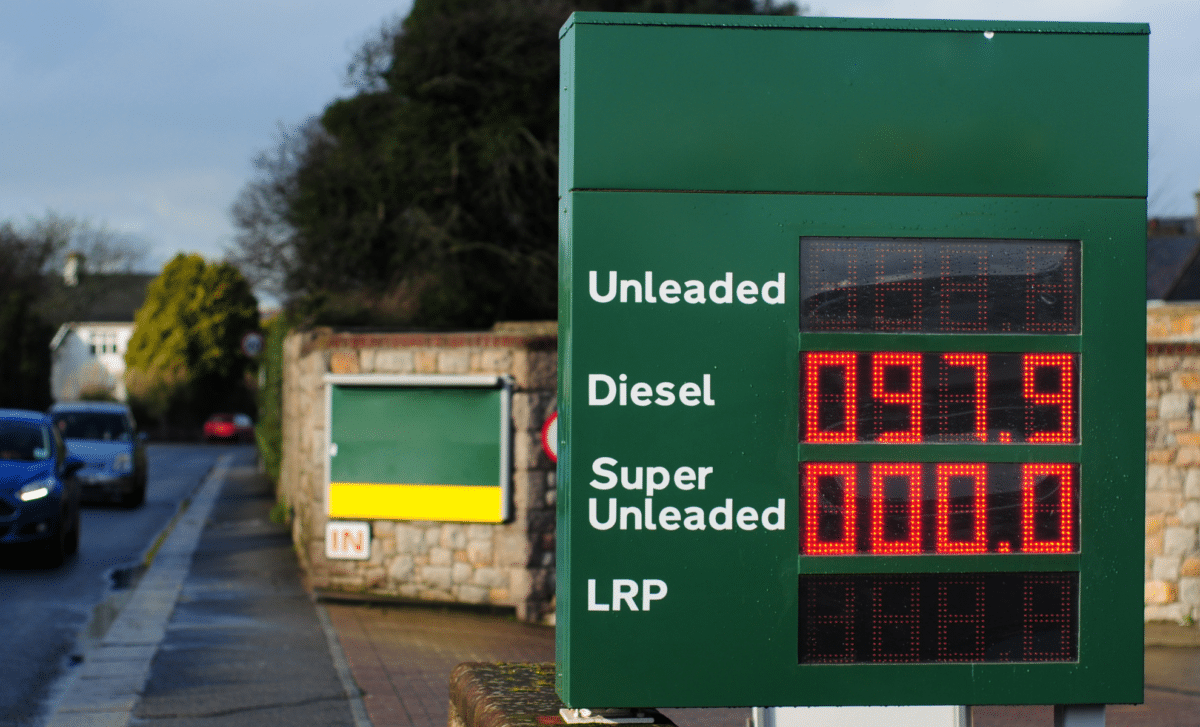UK motorists have faced a significant £2 surge in petrol prices this month, attributed to escalating fuel costs amidst the ongoing Red Sea attacks. This sharp escalation underscores the susceptibility of UK fuel prices to geopolitical tensions in global oil markets.
According to the RAC, petrol prices increased by £3.2 to £143.4 a litre, while diesel hiked by £4 to £152 in the weeks leading to February 18th, the British automotive company defined the situation as “worrying” for drivers.
The financial burden on petrol car drivers appeared to ease over the past three months, with costs dropping from £157 to below £140 in mid-January. This marked the first decline below this threshold since October 2021, when escalating energy pressures began to emerge. However, the Russia-Ukraine conflict in February 2022 precipitated a sharp escalation in fuel prices to record levels.
The cost of diesel saw a significant £15 drop from £163 in early October to just under £148 by late January. This decrease provided relief for consumers after a period of higher prices. Diesel remained relatively affordable throughout much of the previous summer, with prices consistently below £150.
Factors Driving the UK Fuel Prices Surge
The surge in pump costs can be attributed to a significant increase in oil prices, with barrels selling for £80 for the majority of the last four weeks, a stark contrast to the previous seven-month period of lower prices.
The ongoing Red Sea attacks have forced tankers to circumvent the Suez Canal and navigate around South Africa’s Cape of Good Hope instead.
This alteration in shipping routes, identified as one of the reasons behind the recent fuel price increase by the RAC, has disrupted the traditional transportation of oil and contributed to supply chain challenges.
The longer and more costly journey around the Cape of Good Hope has resulted in delays and increased operational expenses for shipping companies, ultimately affecting fuel prices worldwide.
Several other factors have also played a role in the recent surge of fuel prices, including the temporary closure of refineries for maintenance purposes and the strategic stockpiling of fuel by UK retailers. These refinery closures disrupt the production and supply of fuel, leading to temporary shortages and driving prices higher.
Additionally, the proactive approach of retailers in securing additional fuel supplies as a precautionary measure can further strain the market and contribute to price volatility. Together, these factors exacerbate the challenges facing the fuel industry and contribute to the overall increase in fuel prices experienced by consumers.
Simon Williams, the RAC fuel spokesperson, highlighted: “News that fuel prices have bottomed out and are now on the rise again is bad news for drivers, and possibly the economy and future inflation rates, too.
“While we’re not expecting prices to shoot up dramatically, it appears that oil is trading up, which in the absence of a stronger pound means wholesale fuel costs more for retailers to buy in. The result is higher prices at the pump and more expense for the everyday driver.”
Fuel Price Outlook and Regulatory Pressure on Retailers
The RAC is not expecting forecourt costs to reach a record height, “but a lot depends on how much margin the biggest retailers decide to take”, he said. “Supermarket margins are lower than they were in January, but they are still significantly higher than they were prior to the pandemic and Russia’s invasion of Ukraine.”
Retailers have come under intense scrutiny regarding their responsiveness to changes in wholesale fuel costs. In 2023, the government levelled accusations against station owners, alleging they were exploiting motorists as “cash cows.”
In response to this concern, companies are facing increasing pressure to provide real-time pricing information, enabling drivers to conveniently compare prices and identify the most favourable deals available. This initiative aims to enhance transparency in the fuel market, empowering consumers to make informed choices and secure the best value for their purchases.










Don’t allow Houthis to continue their hit and run tactics. Hit them back _ very hard